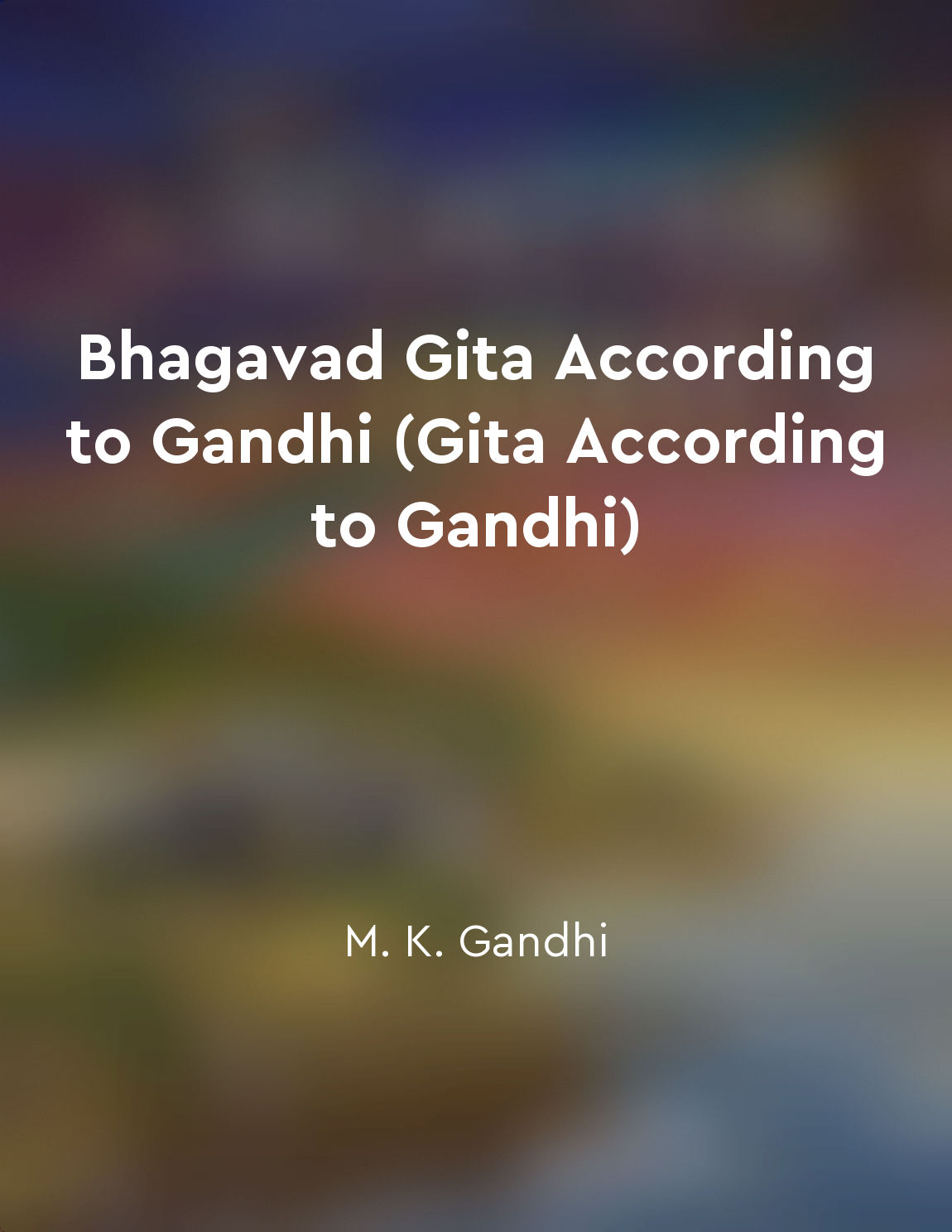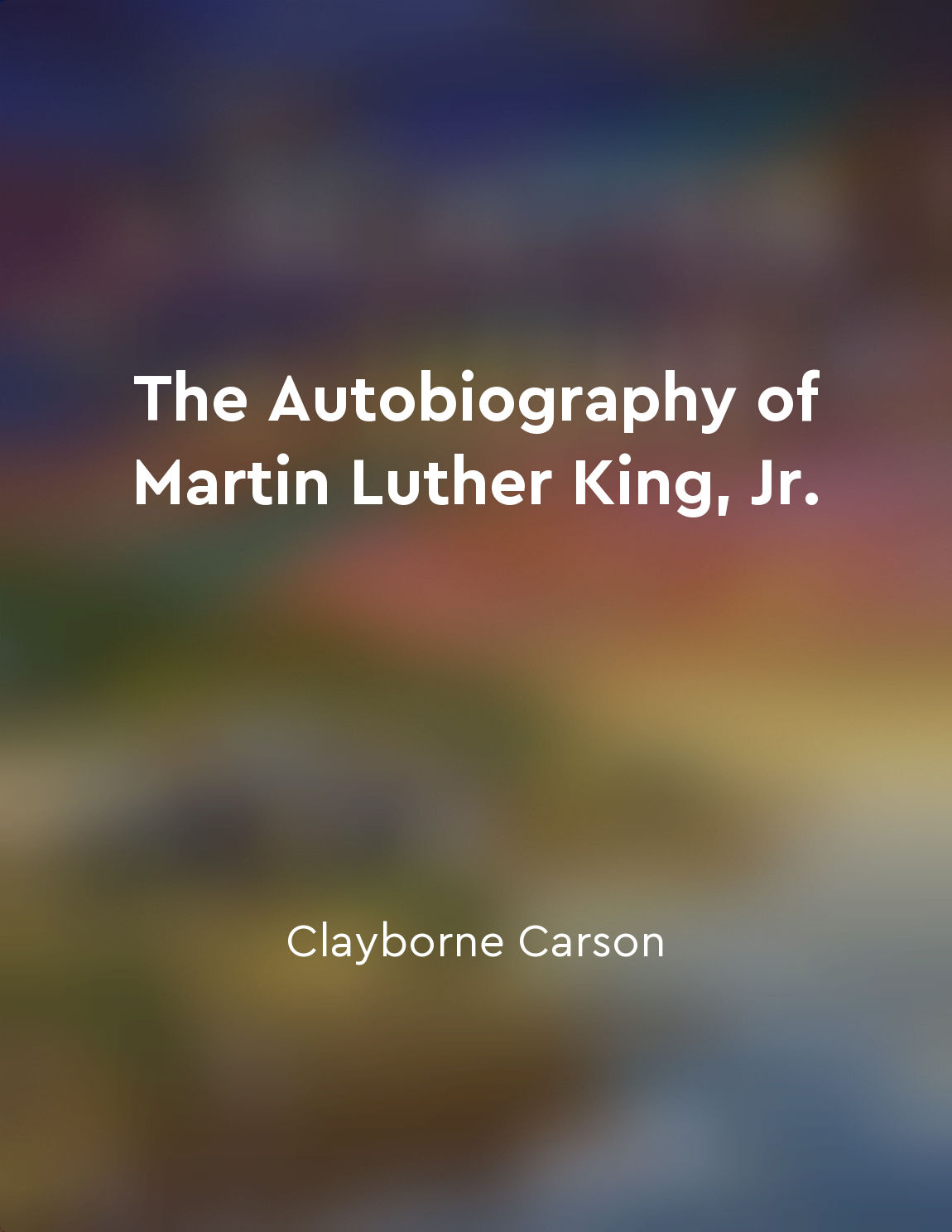Fought for civil rights through peaceful protests from "summary" of The Autobiography of Martin Luther King, Jr. by Clayborne Carson
Martin Luther King Jr. believed that change could be achieved through nonviolent resistance. He advocated for civil rights through peaceful protests, believing that violence only perpetuated more violence. King's philosophy was deeply rooted in the teachings of Mahatma Gandhi, who used nonviolent tactics to fight for Indian independence. King saw nonviolent resistance as a powerful tool for social change, as it challenged the status quo without resorting to violence. King's commitment to nonviolence was evident in the civil rights movement, where he led marches, sit-ins, and boycotts to protest racial segregation and discrimination. These actions were not only symbolic but also strategic, as they aimed to disrupt the system of oppression and bring attention to the injustices faced by African Americans. King and his followers faced violent opposition, but they remained steadfast in their commitment to nonviolence, believing that it was the only way to achieve lasting change. Through peaceful protests, King sought to appeal to the conscience of the nation and inspire others to join the fight for civil rights. He believed that nonviolent resistance could create a moral awakening and compel society to confront its own injustices. King's actions were not only a means of protest but also a form of education, as he sought to show that change could be achieved without resorting to violence. By fighting for civil rights through peaceful protests, King hoped to create a more just and equitable society for all.Similar Posts
Perry faced racism and discrimination
Perry Wallace encountered racism and discrimination throughout his life, from his childhood in segregated Nashville to his time...

Overcome fear and doubt
Gandhi's interpretation of the Bhagavad Gita emphasizes the importance of overcoming fear and doubt in order to achieve spiritu...
Empathy towards others is important
I have learned through my life experiences that understanding and compassion towards others are essential qualities. It is easy...
Buddhism as a tool for empowerment and selfrealization
Dr. Ambedkar's perspective on Buddhism emphasizes its role as a transformative force for individuals seeking empowerment and se...

Uplifting experiences with devotees
In the pages of this sacred text, one encounters numerous accounts of encounters with devotees that leave one's heart uplifted ...
The story of civilization is a testament to the enduring human spirit and its quest for meaning
The history of civilization is a grand tapestry woven with the threads of human spirit and its relentless pursuit of purpose. F...
Buddhist and Jain teachings influenced Indian culture
The teachings of Buddhism and Jainism left a lasting impact on the culture of ancient India, shaping the beliefs and practices ...
Black history is rich and vibrant
The history of Black people is a vast tapestry, woven with threads of resilience, creativity, and triumph. It is a story of str...
Political scenario in contemporary India
The political scenario in contemporary India is marked by a complex interplay of various factors that have shaped the country's...
Commitment to social justice and equality
Malcolm X's unwavering dedication to social justice and equality is a central theme throughout his autobiography. From his earl...

